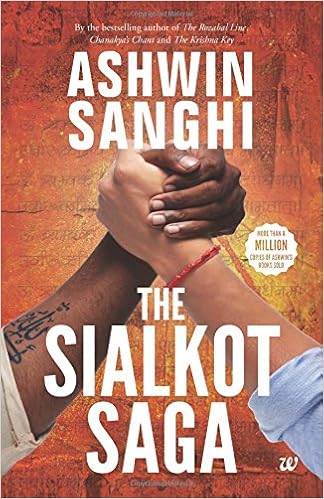
The Sialkot Saga is a story of a businessman and a mafioso, Arvind and Arbaaz. It is a story of their meteoric rise, their huge thirst for success, their 'deals' and how their paths cross and their future shared and intertwined. Arvind operates largely from Calcutta and Arbaaz from Bombay and both cities have found ample description in the book.
In the early years after independence government's role was heavy handed. The Indian state which placed welfare at the heart of its policies had the government play a nanny state. Business would flourish in the strict regulation when mixed with malpractice. Arvind Bagadia, with a sharp economic sense would exactly do that. Governments overregulation also fanned the mafia who indulged in liquor, property, union and other 'businesses'. Arbaaz found his footing there.
The stories of Arvind and Arbaaz are those of planning and execution of cons of various kinds. And through them they reach dizzying heights, reaching position in Forbes richest Indian list. Their personal lives have not been given substantial importance other than their wives, one of whom (Arbaaz's wife Paromita) happened to be the others estranged girlfriend. The secret running from Ashokan empire, passing from generation to generation come together in the end with Arvind and Arbaaz's next generation who by sheer coincidence join in matrimony.
The Sialkot Saga works because Ashwin Sanghi has woven real historical events well into the plot. Be it a Shyama Prasad Mookherji telling a young Vajpayee ji to tell his story to the world, be it the anti-Sikh pogrom post Indira Gandhi's assassination, be it liberalization in 1991 or be it 9/11, at all points in the book the travel from history to present adds to the story that gets built up.
The book works because of the diversity that Ashwin Sanghi has depicted and in good detail. Be it mythology, be it working of a stock market, be it industrial policies of the 70s or be it science towards the end of the book, the research is pretty immaculate. These facts coupled with the historical events gives certain credibility to the plot, which at times veneer towards being filmy.
Overall, it is a light read and a very enjoyable one, especially for those who like a little bit of Indian political history and world history since late 1950's. The story is gripping, is fast paced, has the right masala and importantly is informative too. Do grab a copy, its worth it.
PS: I could find a small error where the name Paromita is mentioned where it should have been Abhilasha on page 352 :P
No comments:
Post a Comment
Feel free to write in...